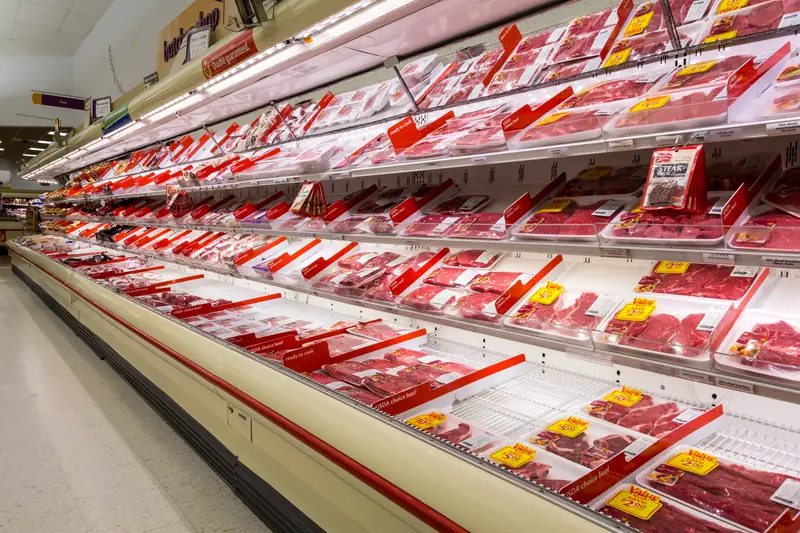Shopping for meat requires careful consideration, especially at major retail chains where quality can vary significantly. Recent investigations reveal that Target, despite its strength in other departments, falls short when it comes to fresh meat offerings. From questionable sourcing practices to freshness concerns, here’s why you might want to reconsider your meat purchases at this retail giant.
Why Target’s meat department raises red flags

Target’s meat department typically lacks specialized butchers and proper meat-cutting facilities. Unlike dedicated grocery stores or butcher shops that process meat in-house, Target relies heavily on pre-packaged products from large processors.
The store’s limited selection often means meat sits longer in display cases, increasing the risk of quality degradation. Many locations struggle with maintaining consistent temperatures and proper rotation of stock, essential factors for meat freshness.
Misleading labels mask meat quality issues
One significant concern is the labeling practices common in large retail chains. Some stores have attempted to obscure meat grades by using generic “USDA Graded” labels instead of specific quality indicators like “Choice” or “Select.”
This practice makes it challenging for consumers to make informed decisions about meat quality. What if you’re paying premium prices for Select-grade meat? The lack of transparency in labeling raises valid concerns about value for money.
Recent safety concerns affect multiple chains

The recent massive recall affecting nearly 10 million pounds of meat products included numerous items sold at Target. While recalls can happen anywhere, the frequency and scale of these incidents at large retail chains deserve attention.
Professional butchers particularly warn against purchasing ground meats from large retail chains. These products often come from multiple animal sources and undergo extensive processing before reaching store shelves, increasing contamination risks.
Better alternatives for meat shopping

Several alternatives offer superior meat quality and value. Specialized grocery stores like Wegmans and Publix maintain dedicated meat departments with trained butchers who can provide custom cuts and reliable advice.
Membership clubs such as Costco and Sam’s Club often provide better value for money, with high-quality meat at competitive prices. These stores typically have higher inventory turnover, ensuring fresher products reach consumers.
Signs of poor meat department management
Watch for warning signs of subpar meat departments: browning edges on steaks, inconsistent cut sizes, empty display cases early in the day, and dirty signage. These indicators suggest inadequate attention to quality control and proper meat handling procedures.
Professional meat managers maintain strict rotation schedules and quality checks throughout the day. The absence of these practices often indicates broader issues with department management and product care.
While Target excels in many retail categories, their meat department falls short of industry standards for quality and selection. Consider exploring alternative options like specialty grocers or membership clubs for your meat purchases. These venues typically offer better quality, value, and expertise – essential factors for making informed meat-buying decisions.

